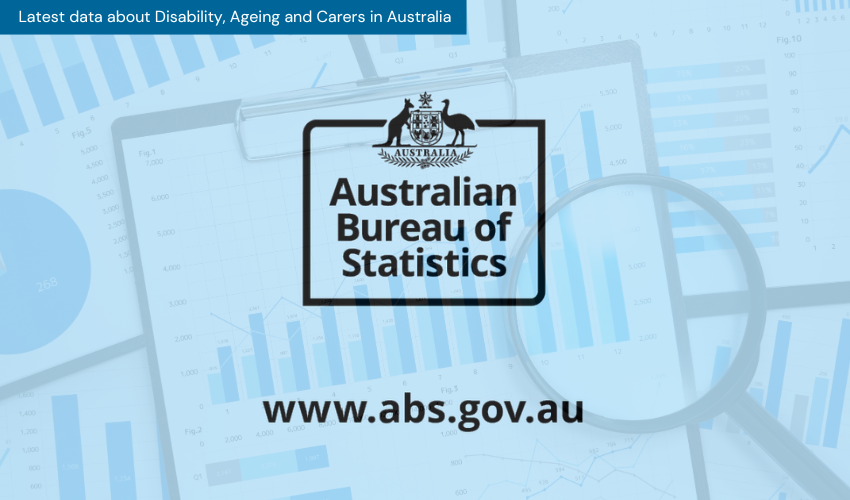On 4 July 2024 the Australian Bureau of Statistics (ABS) released the latest data about Disability, Ageing and Carers in Australia.
This release is from the 2022 Survey of Disability, Ageing and Carers and includes analysis and data cubes focusing on national level data as well as relevant explanatory material.
Please note the following definitions made by the ABS for the purpose of the survey:
- A disability is any condition that limits, restricts or affects everyday activities and lasts, or is likely to last, for at least 6 months.
- Older people are people who are 65 years or older.
- A carer is someone who gives informal assistance to people with disability or older people. Informal assistance is unpaid help from family, friends and neighbours. Primary carers are people who give the most informal assistance with everyday activities and are 15 years or older.
Summary of findings:
Disability
- 5.5 million Australians (21.4%) had disability, up from 17.7% in 2018.
- 15.0% of people aged 0-64 years had disability, compared with 52.3% of people aged 65 years and over.
- Disability prevalence was similar for males (21.0%) and females (21.8%).
- 7.9% of all Australians had a profound or severe disability.
Older people
- 17.1% of Australians were aged 65 years and over (up from 15.9% in 2018).
- 95.9% of older Australians were living in households, while 4.1% lived in cared-accommodation.
- 52.3% of older Australians had disability, and 86.6% had one or more long term health conditions.
- 39.8% of older Australians living at home needed some assistance with everyday activities.
Carers
- There were 3.0 million carers, representing 11.9% of all Australians living in households (up from 10.8% in 2018).
- 12.8% of all females were carers, compared with 11.1% of all males.
- There were 391,300 young carers (under the age of 25), up from 235,300 in 2018.
- There were 1.2 million primary carers in Australia, and of these, 43.8% had disability themselves.
“This latest report further highlights that the demand for palliative care is going to continue to rise at a rapid rate, that innovative models of supportive care for chronic illness are essential, that the support for people with a disability is crucial and that carers play such an essential role, but are often under valued and under represented.” said Kirsty Blades PCNSW CEO.
“These are large challenges, that to solve, will require collaborative and innovative approaches across the entire healthcare ecosystem and that will need to work in partnership with the community. These type of statistics can be disheartening for a system already under pressure, but one of the reasons I have stayed committed to working with Associations and not-for-profits over many years, is that I know the power of people to make change happen, and I see that power everyday in the people I speak to working in palliative care.” added Kirsty.
PCNSW will continue to advocate to build a better system for those suffering from a life-limiting illness taking into account the undeniable statistics presented in this report.
For more detailed information about the report, please find the key findings in plain language by clicking HERE
Also, you can download an easy to read version of findings that includes graphics and summary by clicking HERE


